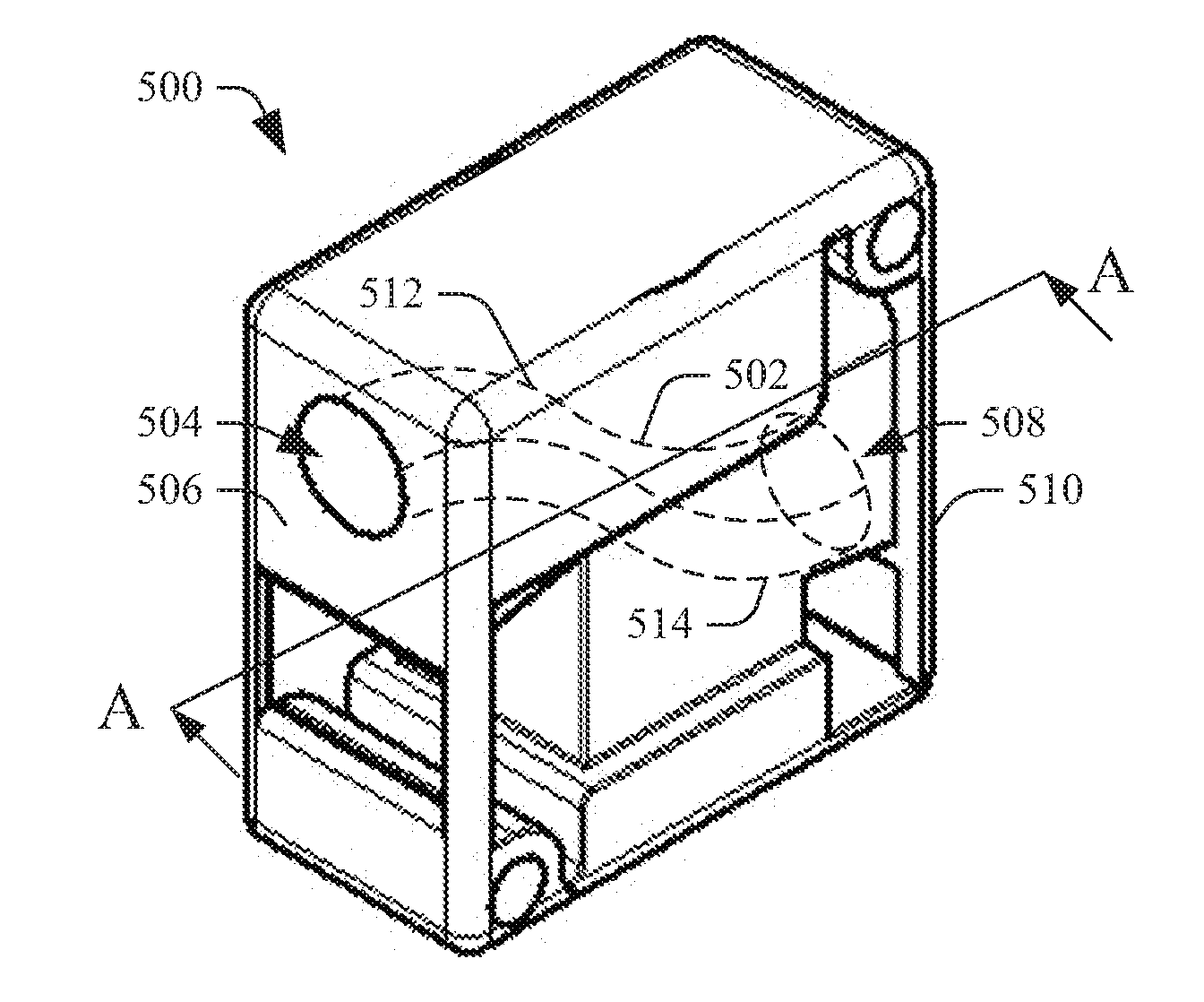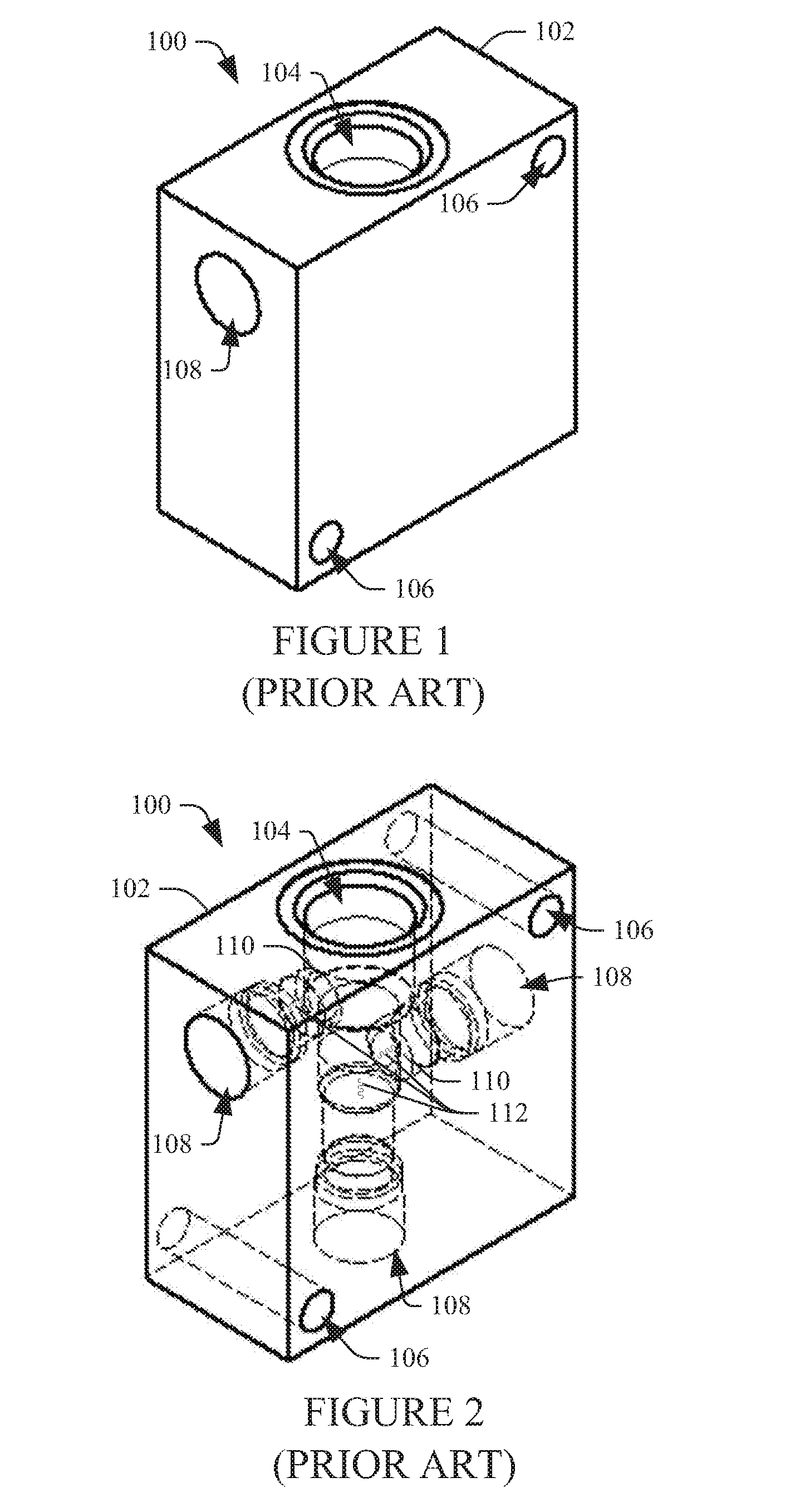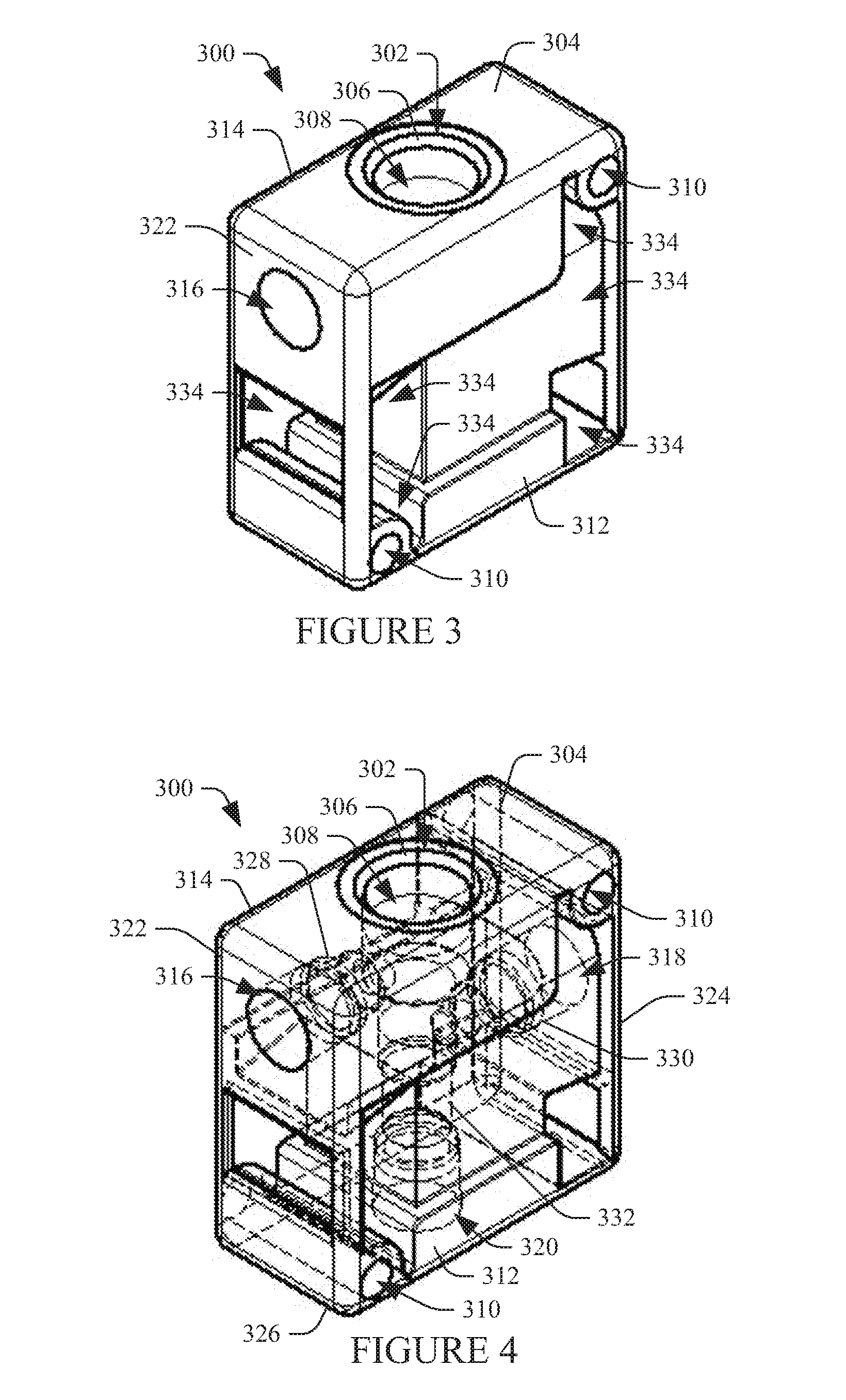Fluid manifold
a manifold and fluid technology, applied in the field of manifolds, can solve the problems of increasing fluid noise and heat generation in the hydraulic system, affecting the operation of the manifold, and reducing the efficiency of the manifold, so as to reduce the manufacturing time and cost, reduce the weight, and reduce the material use
- Summary
- Abstract
- Description
- Claims
- Application Information
AI Technical Summary
Benefits of technology
Problems solved by technology
Method used
Image
Examples
Embodiment Construction
[0036]The following describes a manifold configured with a chamber and a passage through which a material (e.g., a liquid, a gas, a solid, etc.) is distributed, gathered, etc., and / or one or more other manifolds. The manifold, which is constructed through an additive manufacturing technology such as 3-D printing, has reduced weight, reduced physical size, improved system energy efficiency, reduced use of manufacturing materials and / or reduced cost, relative to a configuration fabricated via subtractive and / or other manufacturing process, which might leave undesired and / or unneeded material in and / or on the manifold.
[0037]As utilized herein, additive manufacturing includes a process of making a three-dimensional solid object of virtually any shape (e.g., square, rectangular, “L”, irregular, etc.) from a digital model. One approach utilizes powdered material dispersed across the manufacturing machine's base plate in layers, allowing for the required detail resolution, and fused togeth...
PUM
 Login to View More
Login to View More Abstract
Description
Claims
Application Information
 Login to View More
Login to View More - R&D
- Intellectual Property
- Life Sciences
- Materials
- Tech Scout
- Unparalleled Data Quality
- Higher Quality Content
- 60% Fewer Hallucinations
Browse by: Latest US Patents, China's latest patents, Technical Efficacy Thesaurus, Application Domain, Technology Topic, Popular Technical Reports.
© 2025 PatSnap. All rights reserved.Legal|Privacy policy|Modern Slavery Act Transparency Statement|Sitemap|About US| Contact US: help@patsnap.com



